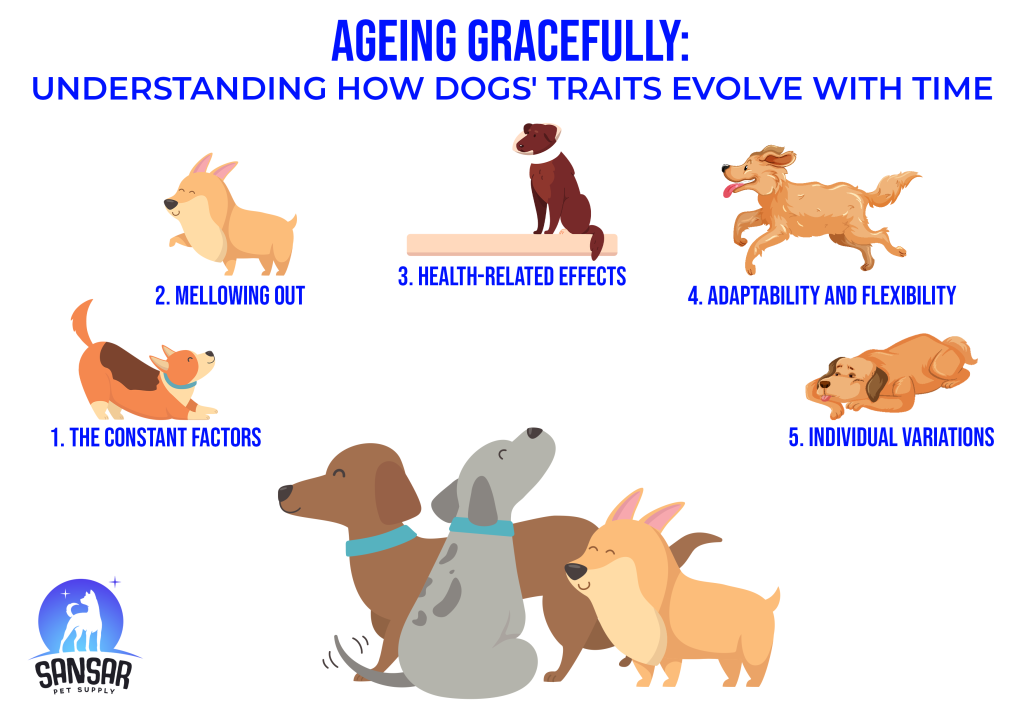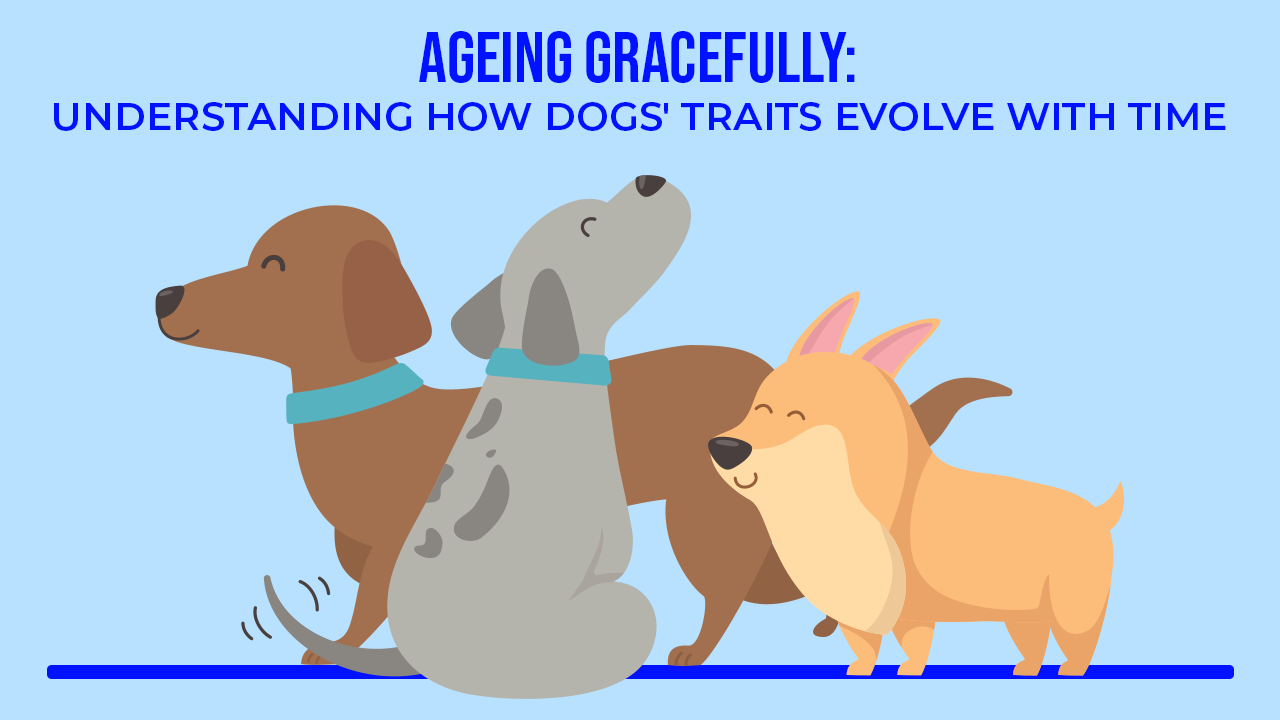Introduction:
As our furry companions accompany us through the various stages of life, it’s natural to wonder how their personalities and traits evolve as they grow old. Just like humans, dogs experience changes in their behavior, health, and overall demeanor as they age. In this blog, we will explore whether dogs retain the same traits or undergo transformations over time, shedding light on the beautiful journey of ageing with our beloved four-legged friends.
The Constant Factors
While it is true that certain core traits and characteristics remain consistent throughout a dog’s life, it’s important to acknowledge that ageing can bring about subtle changes. For instance, a dog’s breed-specific traits, such as intelligence, loyalty, or energy levels, often persist into their golden years. These inherent qualities play a significant role in defining their personality and interactions with the world.
Mellowing Out
As dogs age, many of them tend to mellow out and exhibit calmer behavior compared to their youthful exuberance. The once playful and hyperactive puppy may become more relaxed and content with gentle walks and cuddles. This change is often attributed to a decrease in energy levels and a natural progression towards a more serene lifestyle.

Health-Related Effects
Ageing can also have an impact on a dog’s physical and mental well-being, which in turn may influence their behavior and traits. Just like humans, dogs may experience age-related health conditions, such as arthritis, hearing or vision loss, and cognitive decline. These factors can lead to changes in mobility, sensory perception, and overall vitality, potentially affecting their behavior and reactions.
Adaptability and Flexibility
While some dogs may exhibit steadfast consistency in their traits, others demonstrate remarkable adaptability as they age. Dogs are resilient creatures and possess an innate ability to adjust to changing circumstances. They can adapt their behavior to accommodate physical limitations, altered routines, or the addition of new family members, showcasing their remarkable flexibility and capacity for love.
Individual Variations
It’s crucial to remember that each dog is unique, and the ageing process affects them differently. Some may retain their puppy-like zest well into their senior years, while others may become more reserved or cautious. Factors such as genetics, environment, early socialization, and the care they receive throughout their lives all contribute to the individual variations in how dogs age and develop.
Conclusion:
As our loyal companions age alongside us, they embark on their own transformative journey. While certain traits and qualities may endure, dogs often undergo changes in behavior, health, and adaptability. Embracing these transformations and providing the love, care, and support they need allows us to deepen our connection with them during their golden years. Let’s cherish every stage of our dogs’ lives, celebrating the unwavering love and joy they bring, regardless of the changes that time may bring.







